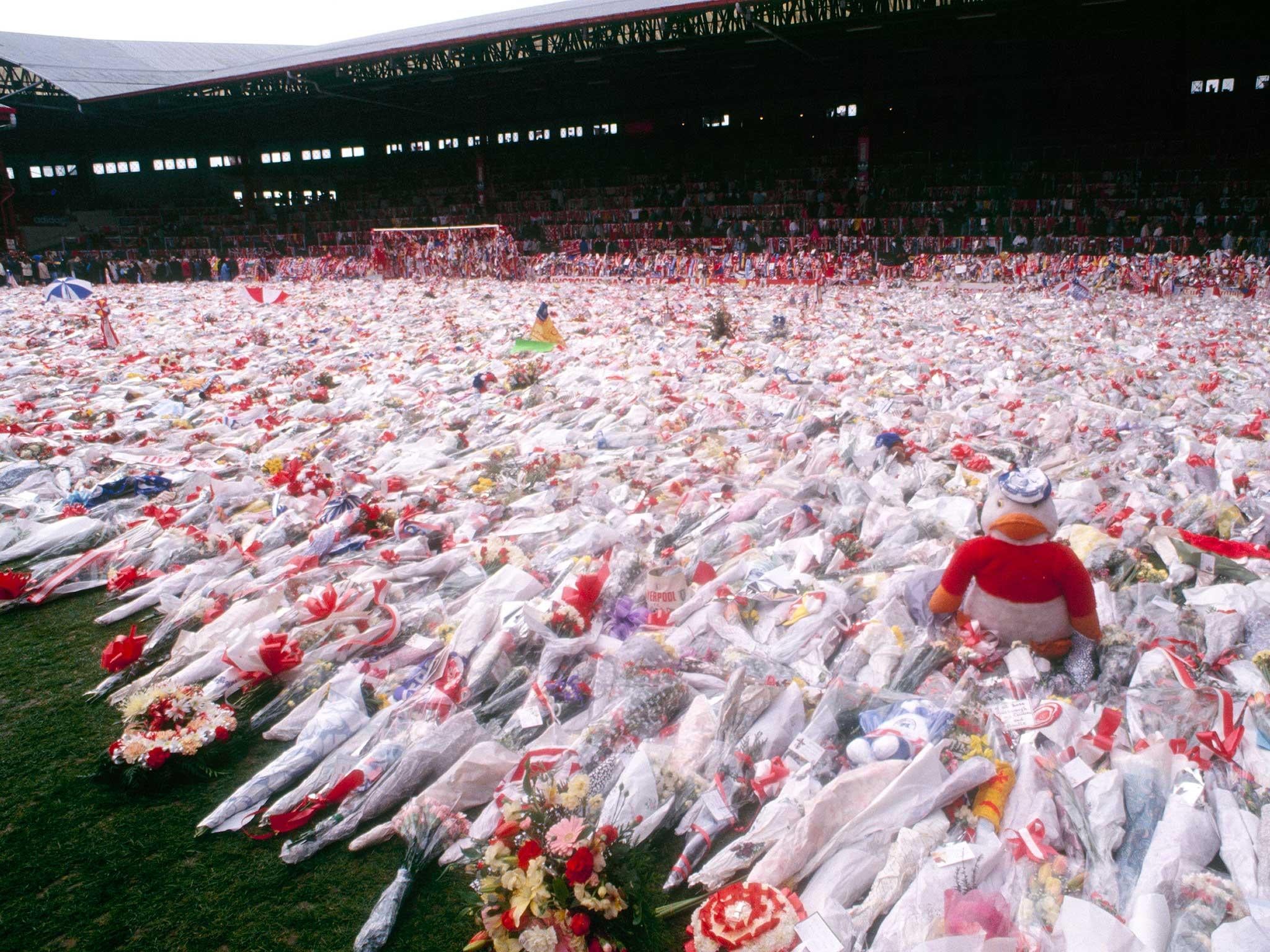Hillsborough criminal investigations into blame over 96 deaths could be concluded by end of the year
The IPCC has been pursuing more than 10,000 lines of enquiry in the biggest ever probe into allegations of police misconduct and criminality

Two major criminal investigations are at an advanced stage of trying to determine who was to blame for the deaths of the 96 Hillsborough victims as jurors at the inquest found that they were unlawfully killed.
The Independent Police Complaints Commission has been pursuing more than 10,000 lines of inquiry in what has become its biggest ever probe into allegations of police misconduct and criminality in the wake of England’s worst sporting disaster.
Operation Resolve, the criminal investigation into the circumstances surrounding the planning of the match and the day of the disaster, has also amassed more than 70,000 pieces of evidence and has interviewed 9,000 witnesses while pursuing 16,000 separate lines of enquiry.
A number of suspects – both individuals and organisations – are being investigated to determine whether they are criminally liable for their part in the disaster and a significant number of people have been interviewed under caution. No arrests have been made. More interviews are expected to take place in the coming months.
No Liverpool fans are being treated as criminal suspects, it is understood.

The ongoing investigations, which by the end of this financial year will have cost more than £80m, could be concluded within the next eight months and the Crown Prosecution Service will ultimately decide who, if anyone, should be prosecuted.
Assistant Commissioner John Stoddart, who heads Operation Resolve, said: “After 27 years, it is vital that the families of the 96 have the true facts about what happened on that day and why their loved ones died. It’s my responsibility and that of the IPCC to find out those facts and present them to the Crown Prosecution Service.”
The two investigations are independent of the inquest. They will be informed by, but will not be bound by, the jury’s determinations.
The IPCC has taken more than 4,000 statements – 400 of them from police officers – and is dealing with more than 140 complaints from survivors and the families of those who died as it investigates offences including conspiracy to pervert the course of justice, perjury and misconduct in a public office.
Its investigation has focused on areas including alleged amendments to police accounts of the disaster, and the checking of blood alcohol levels and the undertaking of Police National Computer checks on the dead and injured.
About 120 journalists and 20 politicians have also given statements to the IPCC and investigators have consulted Government papers as they investigate allegations that misleading information was passed by police to the media and Parliament, as well as to inquiries set up immediately after the disaster.
The 220 IPCC staff involved in the investigation have also been examining allegations that families and campaigners were subject to surveillance after the disaster, and the role of West Midlands Police and those who led its investigation after the disaster in 1989.
It is also managing part of Operation Resolve’s investigation into the actions of South Yorkshire Police including police involvement in the planning of the game, the management of fans outside the Leppings Lane terrace and their entry into the stadium, and the police treatment of injured, dead and dying fans and their families.
It has examined material from organisations including the Football Association.
Operation Resolve is probing offences including gross negligence manslaughter, misconduct in a public office, perverting the course of justice and breaches of health and safety regulations.
It is investigating decisions and actions taken on the day of the match and the planning and decision-making that went into the ground’s design, engineering, alterations and layout – including the condition of the turnstiles and the design of the “pens” where the disaster unfolded. It is also examining the response of the emergency services.
As part of the work of its 191 staff, who include police offices drawn from 16 police forces, it has had more than 370 meetings with families.
Rachel Cerfontyne, deputy chair of the IPCC, said: “It is hugely important to remember that the inquests are not the end of the process. They are another very important stage in the Hillsborough journey and something the campaigners and survivors have campaigned for, for so long.
“Our investigative work will result in files of evidence being presented to the CPS for them to make charging decisions. Our aim is to conduct a thorough and detailed examination of the events of Hillsborough and to deliver as best we can a definitive account of what happened. That’s what we are striving to achieve.”
Bookmark popover
Removed from bookmarks